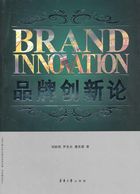But,the transformation ?either into joint-stock companies and trusts,or into State-ownership ?does not do away with the capitalistic nature of the productive forces.In the joint-stock companies and trusts,this is obvious.And the modern State,again,is only the organization that bourgeois society takes on in order to support the external conditions of the capitalist mode of production against the encroachments as well of the workers as of individual capitalists.The modern state,no matter what its form,is essentially a capitalist machine ?the state of the capitalists,the ideal personification of the total national capital.The more it proceeds to the taking over of productive forces,the more does it actually become the national capitalist,the more citizens does it exploit.The workers remain wage-workers ?proletarians.The capitalist relation is not done away with.It is,rather,brought to a head.But,brought to a head,it topples over.State-ownership of the productive forces is not the solution of the conflict,but concealed within it are the technical conditions that form the elements of that solution.
This solution can only consist in the practical recognition of the social nature of the modern forces of production,and therefore in the harmonizing with the socialized character of the means of production.And this can only come about by society openly and directly taking possession of the productive forces which have outgrown all control,except that of society as a whole.The social character of the means of production and of the products today reacts against the producers,periodically disrupts all production and exchange,acts only like a law of Nature working blindly,forcibly,destructively.But,with the taking over by society of the productive forces,the social character of the means of production and of the products will be utilized by the producers with a perfect understanding of its nature,and instead of being a source of disturbance and periodical collapse,will become the most powerful lever of production itself.
Active social forces work exactly like natural forces:blindly,forcibly,destructively,so long as we do not understand,and reckon with,them.
But,when once we understand them,when once we grasp their action,their direction,their effects,it depends only upon ourselves to subject them more and more to our own will,and,by means of them,to reach our own ends.And this holds quite especially of the mighty productive forces of today.As long as we obstinately refuse to understand the nature and the character of these social means of action ?and this understanding goes against the grain of the capitalist mode of production,and its defenders ?so long these forces are at work in spite of us,in opposition to us,so long they master us,as we have shown above in detail.
But when once their nature is understood,they can,in the hand working together,be transformed from master demons into willing servants.The difference is as that between the destructive force of electricity in the lightning in the storm,and electricity under command in the telegraph and the voltaic arc;the difference between a conflagration,and fire working in the service of man.With this recognition,at last,of the real nature of the productive forces of today,the social anarchy of production gives place to a social regulation of production upon a definite plan,according to the needs of the community and of each individual.Then the capitalist mode of appropriation,in which the product enslaves first the producer,and then the appropriator,is replaced by the mode of appropriation of the products that is based upon the nature of the modern means of production;upon the one hand,direct social appropriation,as means to the maintenance and extension of production ?on the other,direct individual appropriation,as means of subsistence and of enjoyment.
Whilst the capitalist mode of production more and more completely transforms the great majority of the population into proletarians,it creates the power which,under penalty of its own destruction,is forced to accomplish this revolution.Whilst it forces on more and more of the transformation of the vast means of production,already socialized,into State property,it shows itself the way to accomplishing this revolution.The proletariat seizes political power and turns the means of production into State property.
But,in doing this,it abolishes itself as proletariat,abolishes all class distinction and class antagonisms,abolishes also the State as State.
Society,thus far,based upon class antagonisms,had need of the State.
That is,of an organization of the particular class which was,pro tempore,the exploiting class,an organization for the purpose of preventing any interference from without with the existing conditions of production,and,therefore,especially,for the purpose of forcibly keeping the exploited classes in the condition of oppression corresponding with the given mode of production (slavery,serfdom,wage-labor).The State was the official representative of society as a whole;the gathering of it together into a visible embodiment.But,it was this only in so far as it was the State of that class which itself represented,for the time being,society as a whole:in ancient times,the State of slaveowning citizens;in the Middle Ages,the feudal lords;in our own times,the bourgeoisie.
When,at last,it becomes the real representative of the whole of society,it renders itself unnecessary.As soon as there is no longer any social class to be held in subjection;as soon as class rule,and the individual struggle for existence based upon our present anarchy in production,with the collisions and excesses arising from these,are removed,nothing more remains to be repressed,and a special repressive force,a State,is no longer necessary.The first act by virtue of which the State really constitutes itself the representative of the whole of society ?the taking possession of the means of production in the name of society ?this is,at the same time,its last independent act as a State.State interference in social relations becomes,in one domain after another,superfluous,and then dies out of itself;the government of persons is replaced by the administration of things,and by the conduct of processes of production.The State is not "abolished".It dies out.This gives the measure of the value of the phrase:"a free State",both as to its justifiable use at times by agitators,and as to its ultimate scientific inefficiency;and also of the demands of the so-called anarchists for the abolition of the State out of hand.
Since the historical appearance of the capitalist mode of production,the appropriation by society of all the means of production has often been dreamed of,more or less vaguely,by individuals,as well as by sects,as the ideal of the future.But it could become possible,could become a historical necessity,only when the actual conditions for its realization were there.Like every other social advance,it becomes practicable,not by men understanding that the existence of classes is in contradiction to justice,equality,etc.,not by the mere willingness to abolish these classes,but by virtue of certain new economic conditions.The separation of society into an exploiting and an exploited class,a ruling and an oppressed class,was the necessary consequences of the deficient and restricted development of production in former times.So long as the total social labor only yields a produce which but slightly exceeds that barely necessary for the existence of all;so long,therefore,as labor engages all or almost all the time of the great majority of the members of society ?so long,of necessity,this society is divided into classes.Side by side with the great majority,exclusively bond slaves to labor,arises a class freed from directly productive labor,which looks after the general affairs of society:the direction of labor,State business,law,science,art,etc.It is,therefore,the law of division of labor that lies at the basis of the division into classes.
But this does not prevent this division into classes from being carried out by means of violence and robbery,trickery and fraud.it does not prevent the ruling class,once having the upper hand,from consolidating its power at the expense of the working-class,from turning its social leadership into an intensified exploitation of the masses.
But if,upon this showing,division into classes has a certain historical justification,it has this only for a given period,only under given social conditions.It was based upon the insufficiency of production.It will be swept away by the complete development of modern productive forces.
And,in fact,the abolition of classes in society presupposes a degree of historical evolution at which the existence,not simply of this or that particular ruling class,but of any ruling class at all,and,therefore,the existence of class distinction itself,has become a obsolete anachronism.
It presupposes,therefore,the development of production carried out to a degree at which appropriation of the means of production and of the products,and,with this,of political domination,of the monopoly of culture,and of intellectual leadership by a particular class of society,has become not only superfluous but economically,politically,intellectually,a hindrance to development.
This point is now reached.Their political and intellectual bankruptcy is scarcely any longer a secret to the bourgeoisie themselves.Their economic bankruptcy recurs regularly every 10years.In every crisis,society is suffocated beneath the weight of its own productive forces and products,which it cannot use,and stands helpless,face-to-face with the absurd contradiction that the producers have nothing to consume,because consumers are wanting.The expansive force of the means of production burst the bonds that the capitalist mode of production had imposed upon them.Their deliverance from these bonds is the one precondition for an unbroken,constantly-accelerated development of the productive forces,and therewith for a practically unlimited increase of production itself.Nor is this all.The socialized appropriation of the means of production does away,not only with the present artificial restrictions upon production,but also with the positive waste and devastation of productive forces and products that are at the present time the inevitable concomitants of production,and that reach their height in the crises.
Further,it sets free for the community at large a mass of means of production and of products,by doing away with the senseless extravagance of the ruling classes of today,and their political representatives.The possibility of securing for every member of society,by mens of socialized production,an existence not only fully sufficient materially,and becoming day-by-day more full,but an existence guaranteeing to all the free development and exercise of their physical and mental faculties ?this possibility is now,for the first time,here,but it is here.[5]
With the seizing of the means of production by society,production of commodities is done away with,and,simultaneously,the mastery of the product over the producer.Anarchy in social production is replaced by systematic,definite organization.The struggle for individual existence disappears.Then,for the first time,man,in a certain sense,is finally marked off from the rest of the animal kingdom,and emerges from mere animal conditions of existence into really human ones.The whole sphere of the conditions of life which environ man,and which have hitherto ruled man,now comes under the dominion and control of man,who for the first time becomes the real,conscious lord of nature,because he has now become master of his own social organization.The laws of his own social action,hitherto standing face-to-face with man as laws of Nature foreign to,and dominating him,will then be used with full understanding,and so mastered by him.
Man's own social organization,hitherto confronting him as a necessity imposed by Nature and history,now becomes the result of his own free action.
The extraneous objective forces that have,hitherto,governed history,pass under the control of man himself.Only from that time will man himself,more and more consciously,make his own history ?only from that time will the social causes set in movement by him have,in the main and in a constantly growing measure,the results intended by him.It is the ascent of man from the kingdom of necessity to the kingdom of freedom.
Let us briefly sum up our sketch of historical evolution.
I.Mediaeval Society ?Individual production on a small scale.Means of production adapted for individual use;hence primitive,ungainly,petty,dwarfed in action.Production for immediate consumption,either of the producer himself or his feudal lord.
Only where an excess of production over this consumption occurs is such excess offered for sale,enters into exchange.Production of commodities,therefore,only in its infancy.But already it contains within itself,in embryo,anarchy in the production of society at large.
II.Capitalist Revolution ?transformation of industry,at first be means of simple cooperation and manufacture.Concentration of the means of production,hitherto scattered,into great workshops.As a consequence,their transformation from individual to social means of production ?a transformation which does not,on the whole,affect the form of exchange.The old forms of appropriation remain in force.The capitalist appears.In his capacity as owner of the means of production,he also appropriates the products and turns them into commodities.Production has become a social act.Exchange and appropriation continue to be individual acts,the acts of individuals.The social product is appropriated by the individual capitalist.Fundamental contradiction,whence arise all the contradictions in which our present-day society moves,and which modern industry brings to light.
A.Severance of the producer from the means of production.
Condemnation of the worker to wage-labor for life.Antagonism between the proletariat and the bourgeoisie.
B.Growing predominance and increasing effectiveness of the laws governing the production of commodities.Unbridled competition.
Contradiction between socialized organization in the individual factory and social anarchy in the production as a whole.
C.On the one hand,perfecting of machinery,made by competition compulsory for each individual manufacturer,and complemented by a constantly growing displacement of laborers.Industrial reserve-army.
On the other hand,unlimited extension of production,also compulsory under competition,for every manufacturer.On both sides,unheard-of development of productive forces,excess of supply over demand,over-production and products ?excess there,of laborers,without employment and without means of existence.But these two levers of production and of social well-being are unable to work together,because the capitalist form of production prevents the productive forces from working and the products from circulating,unless they are first turned into capital ?which their very superabundance prevents.The contradiction has grown into an absurdity.The mode of production rises in rebellion against the form of exchange.
D.Partial recognition of the social character of the productive forces forced upon the capitalists themselves.Taking over of the great institutions for production and communication,first by joint-stock companies,later in by trusts,then by the State.The bourgeoisie demonstrated to be a superfluous class.All its social functions are now performed by salaried employees.
III.Proletarian Revolution ?Solution of the contradictions.The proletariat seizes the public power,and by means of this transforms the socialized means of production,slipping from the hands of the bourgeoisie,into public property.By this act,the proletariat frees the means of production from the character of capital they have thus far borne,and gives their socialized character complete freedom to work itself out.Socialized production upon a predetermined plan becomes henceforth possible.The development of production makes the existence of different classes of society thenceforth an anachronism.In proportion as anarchy in social production vanishes,the political authority of the State dies out.Man,at last the master of his own form of social organization,becomes at the same time the lord over Nature,his own master ?free.
To accomplish this act of universal emancipation is the historical mission of the modern proletariat.To thoroughly comprehend the historical conditions and this the very nature of this act,to impart to the now oppressed proletarian class a full knowledge of the conditions and of the meaning of the momentous act it is called upon to accomplish,this is the task of the theoretical expression of the proletarian movement,scientific Socialism.
Footnotes 1Mephistopheles in Goethe's Faust [2]It is hardly necessary in this connection to point out that,even if the form of appropriation remains the same,the character of the appropriation is just as much revolutionized as production is by the changes described above.It is,of course,a very different matter whether I appropriate to myself my own product or that of another.Note in passing that wage-labor,which contains the whole capitalist mode of production in embryo,is very ancient;in a sporadic,scattered form,it existed for centuries alongside slave-labor.But the embryo could duly develop into the capitalistic mode of production only when the necessary historical pre-conditions had been furnished.
[3]"The Conditions of the Working-Class in England"?Sonnenschein &Co.,p.84.
[4]I say "have to".For only when the means of production and distribution have _actually_outgrown the form of management by joint-stock companies,and when,therefore,the taking them over by the State has become _economically_inevitable,only then ?even if it is the State of today that effects this ?is there an economic advance,the attainment of another step preliminary to the taking over of all productive forces by society itself.But of late,since Bismarck went in for State-ownership of industrial establishments,a kind of spurious Socialism has arisen,degenerating,now and again,into something of flunkyism,that without more ado declares all State-ownership,even of the Bismarkian sort,to be socialistic.Certainly,if the taking over by the State of the tobacco industry is socialistic,then Napoleon and Metternich must be numbered among the founders of Socialism.
If the Belgian State,for quite ordinary political and financial reasons,itself constructed its chief railway lines;if Bismarck,not under any economic compulsion,took over for the State the chief Prussian lines,simply to be the better able to have them in hand in case of war,to bring up the railway employees as voting cattle for the Government,and especially to create for himself a new source of income independent of parliamentary votes ?this was,in no sense,a socialistic measure,directly or indirectly,consciously or unconsciously.Otherwise,the Royal Maritime Company,the Royal porcelain manufacture,and even the regimental tailor of the army would also be socialistic institutions,or even,as was seriously proposed by a sly dog in Frederick William III's reign,the taking over by the State of the brothels.
[5]A few figures may serve to give an approximate idea of the enormous expansive force of the modern means of production,even under capitalist pressure.
According to Mr.Giffen,the total wealth of Great Britain and Ireland amounted,in round numbers in 1814to ?2,200,000,000,1865to ?6,100,000,000,1875to ?8,500,000,000.
As an instance of the squandering of means of production and of products during a crisis,the total loss in the German iron industry alone,in the crisis of 1873-78,was given at the second German Industrial Congress (Berlin,February 21,1878),as 22,750,000pounds.















